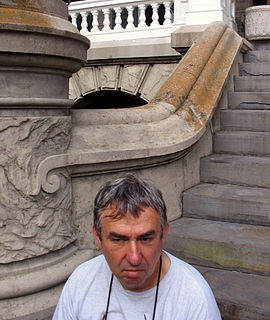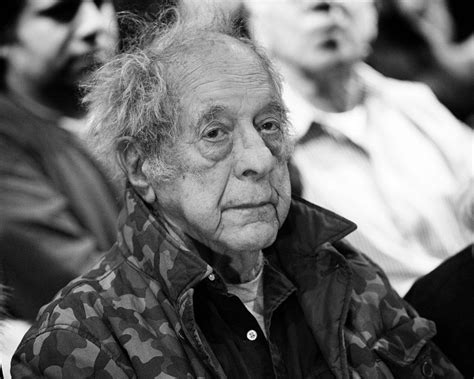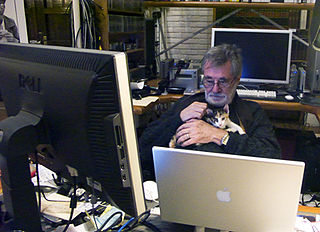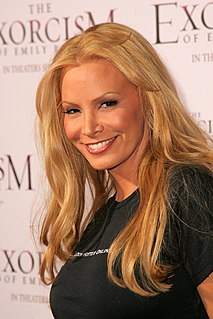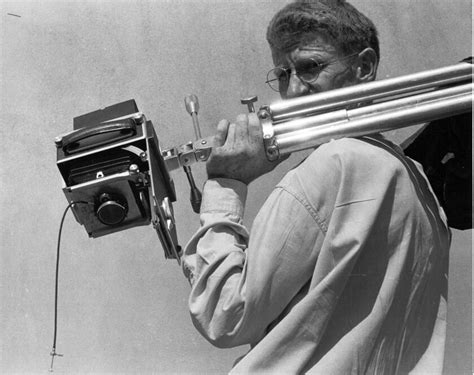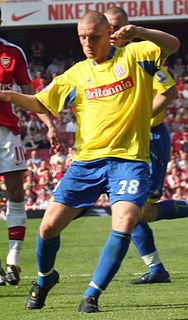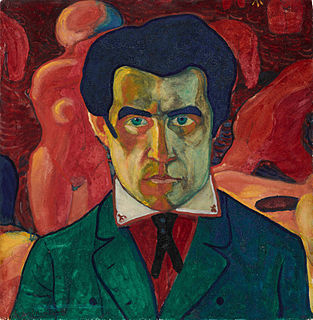A Quote by Paul Strand
I don't care how you photograph - use the kitchen mop if you must, but if the product is not true to the laws of photography... you have produced something that is dead. (1923)
Quote Topics
Related Quotes
Look at the things around you, the immediate world around you. If you are alive, it will mean something to you, and if you care enough about photography, and if you know how to use it, you will want to photograph that meaningness. If you let other people's vision get between the world and your own, you will achieve that extremely common and worthless thing, a pictorial photograph.
One of the magical things about photography is the transformation that takes place when you photograph something. Something that inherently has very little going for it in terms of the interest you take in it, can become infinitely more interesting when rendered as a photograph. It's no longer a building. It's a photograph.
The minute you start saying something, 'Ah, how beautiful! We must photograph it!' you are already close to view of the person who thinks that everything that is not photographed is lost, as if it had never existed, and that therefore, in order really to live, you must photograph as much as you can, and to photograph as much as you can you must either live in the most photographable way possible, or else consider photographable every moment of your life. The first course leads to stupidity; the second to madness.
I never had any intention nor interest in being an artist, but when I made work I realized that this was my language. What I had to say needed to be said in this way. I always loved taking photographs - but never considered myself a photographer. I have tremendous respect for photographers. I do use a camera and a photo as a basis for a lot of my work, but I use it as a means to attain an image to work from. The actual photography in my work is a monochromatic photograph. I'll photograph something and extract a color that will then be the background for a painting.
Before, the myth of photography doesn't lie was used in order to cover up tricks. If I [make a] portrait [of] you, accommodate you, illuminate you, put make up on you or use a filter, am I not manipulating reality? The only difference is that now I can do it from the computer in the postclick instead of the preclick. If I decide to photograph something instead of something else, I also manipulate reality. Of course a photograph can lie or commit abuse, but it always could.
When, you know, I'm busy and Nancy Pelosi is busy with our mop cleaning up somebody else's mess ?- we don't want somebody sitting back saying, you're not holding the mop the right way. Why don't you grab a mop, why don't you help clean up. You're not mopping fast enough. That's a socialist mop. Grab a mop ?- let's get to work.
America touts itself as the land of the free, but the number one freedom that you and I have is the freedom to enter into a subservient role in the workplace. Once you exercise this freedom you’ve lost all control over what you do, what is produced, and how it is produced. And in the end, the product doesn’t belong to you. The only way you can avoid bosses and jobs is if you don’t care about making a living. Which leads to the second freedom: the freedom to starve.
I had to really do some studying and examination of my own songwriting and I realized that, there's not a formula by any stretch of the imagination and aren't any rules, but there are principles. The first one is that art is a process, not a product. In fact, that holds true for damn near everything we do in life. The product is just something that happens. If you're faithful to the process, the product takes care of itself.
I regard photography and film simply as new technical means which painters must absolutely make use of, just as from time out of mind they have made use of brush, charcoal and color. It is certain, however, that photography and film must become as evocative for the sensibility as pencil, charcoal and brush. (1927)

